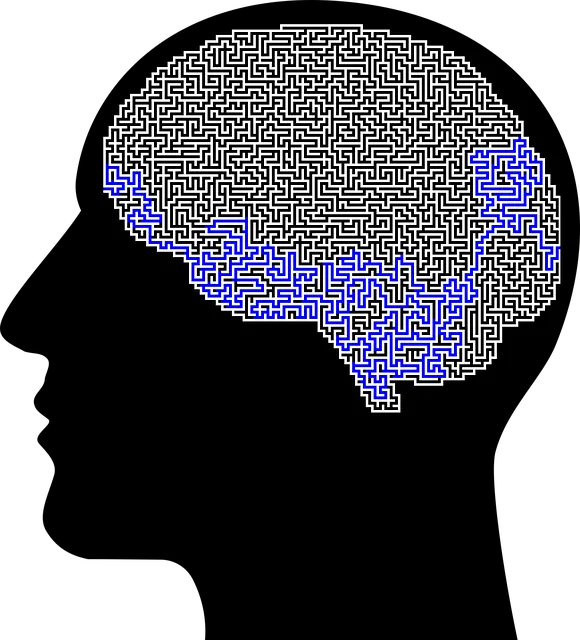The Kaiser Permanente Mental Health Number Littleton initiative is an integrated, evidence-based program enhancing mental wellness access within primary care. Through tailored services, culturally sensitive practices, and Social Skills Training, it addresses diverse populations' needs. Evaluating its impact requires a multifaceted approach combining quantitative (pre-post surveys) and qualitative methods (interviews, focus groups). This dual strategy captures emotional intelligence and regulation improvements, fostering burnout prevention and measuring program success. By integrating diverse assessment tools and leveraging data analysis, Kaiser Permanente ensures tailored, effective mental health support, exemplified by the Littleton program.
The success of any mental wellness program lies in its evaluation and continuous improvement. This article explores effective evaluation methods for mental health initiatives, using the Kaiser Permanente Mental Health Number Littleton (KMHNL) as a case study. We’ll delve into key metrics, assessment strategies, and data analysis techniques that contribute to measuring impact and enhancing program effectiveness. By understanding KMHNL’s approach, we can navigate mental wellness program evaluations, ensuring comprehensive coverage and positive outcomes.
- Understanding Kaiser Permanente Mental Health Number Littleton: A Program Overview
- Evaluation Methods for Mental Wellness Programs: Key Metrics and Techniques
- Implementing Effective Assessment Strategies: Ensuring Comprehensive Coverage
- Measuring Impact and Success: Continuous Improvement Through Data Analysis
Understanding Kaiser Permanente Mental Health Number Littleton: A Program Overview

The Kaiser Permanente Mental Health Number Littleton initiative is a remarkable example of integrating comprehensive mental wellness programs into primary healthcare settings. This innovative program aims to address the growing need for accessible and tailored mental health support, particularly within the community. By utilizing a multi-faceted approach, it offers a unique blend of services that cater to diverse populations.
One of its key components is the implementation of Social Skills Training, designed to empower individuals with effective coping strategies and enhance their overall well-being. Additionally, the program prioritizes Cultural Sensitivity in Mental Healthcare Practice, ensuring that the services are inclusive and respectful of various cultural backgrounds. This sensitivity is vital for building trust and fostering a safe environment for all participants. The mental health education programs’ design focuses on evidence-based practices, making it a game-changer in promoting mental wellness within the Kaiser Permanente network.
Evaluation Methods for Mental Wellness Programs: Key Metrics and Techniques

Mental wellness program evaluations are crucial for understanding their effectiveness and making informed improvements. Key metrics often include self-reported surveys gauging participants’ perceived improvements in symptoms, quality of life, and overall well-being. These can be administered pre and post-program to track changes over time, as seen in the Kaiser Permanente mental health number Littleton initiative. Additionally, qualitative methods like interviews or focus groups offer insights into participants’ experiences, preferences, and suggestions for enhancement.
Beyond these, integrating metrics related to Emotional Intelligence (EI) and Emotional Regulation (ER) can provide deeper understanding of program impact on participants’ ability to manage and interact with their emotions. This is particularly relevant in burnout prevention efforts, where promoting EI and ER skills can mitigate stress and enhance resilience. Evaluative techniques should be diverse, encompassing both quantitative data for broad trends and qualitative data for nuanced perspectives, ensuring a comprehensive assessment of mental wellness programs’ success and areas needing adjustment.
Implementing Effective Assessment Strategies: Ensuring Comprehensive Coverage

Implementing effective assessment strategies is paramount when evaluating mental wellness programs, ensuring that all facets of participant experiences are captured. Organizations like Kaiser Permanente, with their mental health resources in Littleton, have recognized the value of comprehensive evaluation methods to measure the impact and success of their initiatives. This involves integrating various assessment tools tailored to different aspects of mental wellness.
A well-rounded approach should include assessing not only the knowledge gained through Mental Health Education Programs Design but also the adoption of Self-Care Practices and the cultivation of Self-Awareness Exercises. By combining quantitative metrics, such as survey responses, with qualitative insights from interviews or focus groups, evaluators can gain a deeper understanding of participants’ journeys towards mental wellness. This dual approach ensures that programs are not only effective on a broad level but also resonate with individual needs, fostering meaningful and lasting positive changes.
Measuring Impact and Success: Continuous Improvement Through Data Analysis

Measuring impact is a crucial aspect of any successful mental wellness program. By utilizing data analysis techniques, organizations like Kaiser Permanente can gain valuable insights into the effectiveness of their initiatives. The mental health number in Littleton, a key performance indicator, allows for tracking progress and identifying areas needing improvement. This involves comparing pre-and post-program surveys to gauge changes in participants’ emotional well-being promotion techniques and stress management workshops organization.
Through this data-driven approach, programs can be refined and tailored to better serve the community’s needs, focusing on evidence-based anxiety relief methods. Continuous improvement ensures that resources are allocated efficiently, maximizing the positive impact on mental health and enhancing overall program success.
The evaluation of mental wellness programs, such as the one offered by Kaiser Permanente in Littleton, is a multifaceted process that leverages key metrics and advanced techniques. By understanding the Kaiser Permanente Mental Health Number Littleton program’s scope and implementing effective assessment strategies, organizations can ensure comprehensive coverage of mental health services. Continuous improvement through data analysis is essential to measure impact and success, ultimately enhancing overall well-being for all participants.






